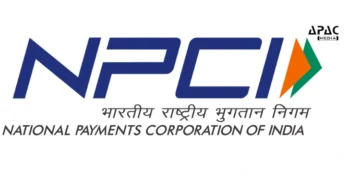India, with its vast talent pool and rapidly growing economy, has the potential to become the world’s skill hub. As APAC Media prepares to host the 5th National Skill Conclave in Bhopal, it is imperative to explore the key sectors that will drive India’s workforce transformation.
Eight critical domains—AI & Robotics, Semiconductors, Cybersecurity, Green Jobs, Healthtech, Digital Literacy, Drone Technology, and Food Processing—demand immediate attention to accelerate the vision of Viksit Bharat 2047 and position India as a global leader in innovation and workforce development.
Let us delve into each of these sectors, assessing India’s current status and the opportunities for growth, setting the stage for insightful discussions at the upcoming conclave.
1. AI & Robotics: Shaping the Future of Industries
Why Skilling in AI & Robotics is Important:
Artificial Intelligence (AI) and Robotics are transforming industries worldwide, from manufacturing and healthcare to finance and education. With automation replacing repetitive tasks, a workforce skilled in AI, machine learning, and robotics will be crucial to maintaining India’s competitive edge.
India’s Current Status:
India boasts a robust IT ecosystem, with startups and tech giants actively investing in AI research. Initiatives like the IndiaAI Mission aim to democratize computing access, enhance data quality, develop indigenous AI capabilities, and attract top AI talent. Additionally, NITI Aayog’s National Strategy for AI focuses on leveraging AI to drive economic growth, improve social outcomes, and address critical national challenges across various sectors. Despite these efforts, India still faces a considerable gap in AI talent compared to global leaders like the US and China.
How India Can Improve:
- Expanding AI and robotics courses in universities and technical institutes.
- Encouraging industry-academia collaboration for research and practical training.
- Providing AI upskilling programs through government initiatives like Skill India.
2. Semiconductor Manufacturing: Reducing Import Dependency
Why Skilling in Semiconductors is Important:
The semiconductor industry powers everything from smartphones to defense systems. India imports most of its semiconductors, making it vulnerable to global supply chain disruptions. Developing a skilled workforce in semiconductor design and fabrication will be key to India’s self-reliance.
India’s Current Status:
Although India is a major consumer of semiconductors, its domestic manufacturing ecosystem remains limited. However, the government’s Rs. 76,000 crore incentive under the Semicon India Programme, along with an increased budget allocation of Rs. 7,000 crore, is expected to strengthen skilling initiatives and drive self-reliance in the sector. Additionally, investments from global leaders like Taiwan-based TSMC and US-based Micron are set to create employment opportunities and accelerate India’s emergence as a key player in the global semiconductor market.
How India Can Improve:
- Setting up dedicated semiconductor training programs in IITs and NITs.
- Encouraging industry partnerships to build semiconductor R&D centers.
- Providing government-backed financial support for semiconductor startups.
3. Cybersecurity: Safeguarding Digital India
Why Skilling in Cybersecurity is Important:
With India’s rapid digitalization, cyber threats have increased significantly. From banking fraud to data breaches, securing digital infrastructure is crucial for businesses and government institutions.
India’s Current Status:
The Indian Computer Emergency Response Team (CERT-In) plays a crucial role in securing India’s cyber ecosystem. With a 24×7 incident response help desk, CERT-In ensures swift action against cybersecurity threats while providing Incident Prevention and Response services, along with Security Quality Management solutions to strengthen national cybersecurity. Despite these efforts, India faces a shortage of skilled cybersecurity professionals. Government initiatives like Cyber Surakshit Bharat and Cyber Swachhta Kendra aim to enhance cyber resilience, yet private companies continue to struggle with the availability of adequately trained talent.
How India Can Improve:
- Introducing cybersecurity as a mandatory subject in higher education.
- Encouraging ethical hacking and cybersecurity certification programs.
- Increasing public-private collaboration to create cybersecurity training centers.
4. Green Jobs: Building a Sustainable Future
Why Skilling in Green Jobs is Important:
With climate change becoming a pressing issue, green jobs in renewable energy, electric vehicles (EVs), and sustainable infrastructure will drive future employment. India aims to reach 500 GW of renewable energy capacity by 2030, creating millions of green job opportunities.
India’s Current Status:
India is the world’s third-largest producer of renewable energy, yet there remains a significant shortage of skilled workers in key areas such as solar panel installation, wind turbine maintenance, and sustainable construction.
In the electric vehicle (EV) sector, India witnessed a 16% increase in EV registrations in the first half of 2024, with 8,42,396 EVs registered compared to 7,23,492 during the same period in 2023. In total, 15,29,947 EVs were registered throughout 2023. This steady growth highlights the country’s commitment to sustainable transportation and signals increasing consumer confidence and market readiness for green mobility solutions.
As of June 6, 2024, India has established 16,344 public charging stations, which include 27,471 public charging points and 10,756 fast-charging points, further promoting EV adoption. However, a lack of skill in manufacturing adequate charging facilities and EV batteries continues to hinder the widespread adoption of EVs in India.
How India Can Improve:
- Launching vocational training for solar and wind energy technicians.
- Encouraging Research & Development (R&D) in green hydrogen and battery technology.
- Offering incentives for companies that invest in green job training and manufacturing.
5. Healthtech: Transforming Healthcare with Technology
Why Skilling in Healthtech is Important:
The COVID-19 pandemic highlighted the need for advanced healthcare solutions. From telemedicine to AI-driven diagnostics, healthtech is reshaping the medical field, requiring skilled professionals in biomedical engineering, health informatics, and digital healthcare services.
India’s Current Status:
India has a booming healthtech sector, with several startups revolutionizing healthcare. However, there is a shortage of skilled professionals to manage and develop healthtech solutions.
How India Can Improve:
- Offering specialized healthtech courses in medical and engineering colleges.
- Expanding telemedicine training programs for healthcare professionals.
- Encouraging AI integration in medical diagnostics through government support.
6. Digital Literacy: Empowering the Workforce
Why Skilling in Digital Literacy is Important:
As businesses shift to digital platforms, basic digital skills have become essential for all job roles. From rural entrepreneurs to urban professionals, digital literacy will be key to enhancing productivity and economic inclusion.
India’s Current Status:
While digital penetration has increased with initiatives like Digital India, millions of people still lack basic computer skills, making it difficult for them to participate in the digital economy.
How India Can Improve:
- Expanding digital literacy programs to rural areas through community centers.
- Integrating coding and digital skills into school curriculums.
- Partnering with private companies to provide free digital training.
7. Drone Technology: The Future of Logistics and Surveillance
Why Skilling in Drone Technology is Important:
Drone technology is transforming sectors such as agriculture, defense, logistics, and disaster management. The global drone market is expected to reach $54 billion by 2025, with India poised to capture a significant portion. According to the EY-FICCI report titled ‘Making India the Drone Hub of the World’, India’s drone market could grow to $4.2 billion by 2025 and surge to $23 billion by 2030. Civil Aviation Minister Jyotiraditya Scindia has emphasized that India has the potential to become a global leader in drone technology by 2030.
India’s Current Status:
The government has introduced the Drone Shakti scheme to promote domestic manufacturing. With new initiatives like Drone Didi, aimed at expanding participation across the ecosystem, the drone industry is expected to experience significant growth. However, there is still a shortage of trained drone pilots and developers, which remains a challenge for the sector’s expansion.
How India Can Improve:
- Establishing drone pilot training academies.
- Encouraging startups to innovate in drone applications.
- Integrating drone technology courses in engineering and vocational institutes.
8. Food Processing: Enhancing Agri-Based Employment
Why Skilling in Food Processing is Important:
India is one of the largest food producers in the world, yet a significant portion of agricultural produce is wasted due to inadequate processing facilities. Strengthening food processing skills can boost exports, reduce waste, and create rural employment.
India’s Current Status:
While the government’s Pradhan Mantri Kisan Sampada Yojana (PMKSY) supports food processing industries, there is a lack of skilled workers in food technology, cold storage management, and packaging.
How India Can Improve:
- Setting up dedicated food processing training institutes.
- Encouraging research in food preservation and packaging.
- Providing incentives for food processing startups.











































































Discussion about this post